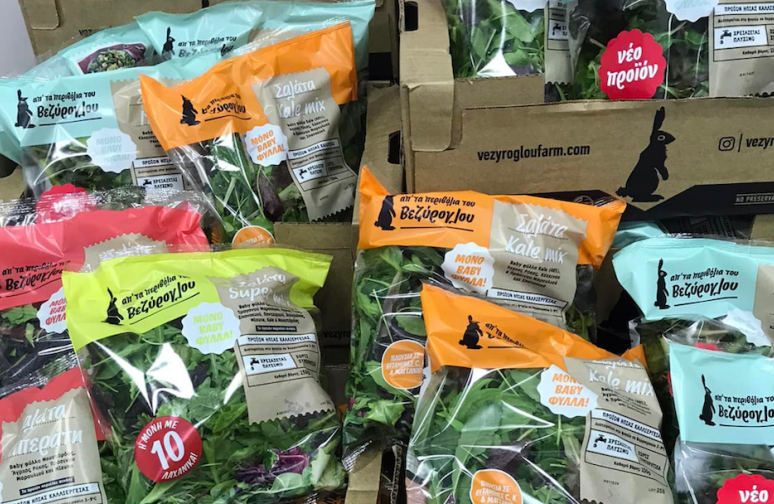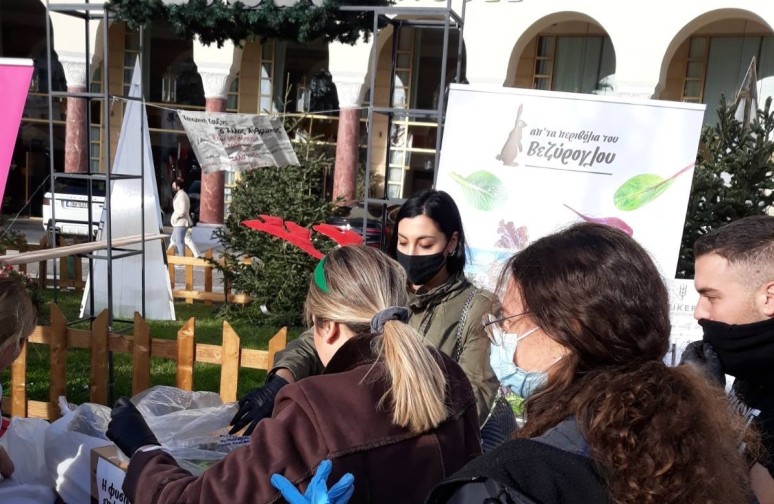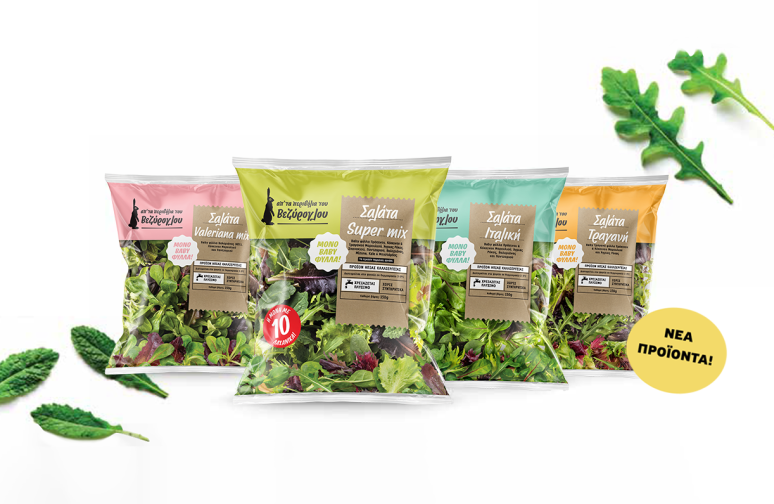A farm from which you learn the history of Greek agricultural production?
A success story? Another Greece that knows how to operate and gives hope to Greek business?
Watch and listen to the interview of Antonis Vezyroglou from the Vezyroglou Farm. The farm has a history of 100 years here in the plain of Macedonia in Skinas, Alexandria Imathia. In the past (last century) there was a Vezyroglou farm in Magnesia of Asia Minor near Smyrna.
Here, on this farm in Skinas, modern cotton farming started in Macedonia in the 30's,
In early '60s, sugarbeet cultivation also began in Greece from this farm.
At that time, it was Vezyroglou's grandfather, Antonis Vezyroglou with his two brothers.
At the same time other crops were also cultivated like cereals, corn etc.
In the '80s and '90s the Farm owned the largest apple and pear orchard in Greece (25 hectares)
In the 2000s we had the largest Asparagus farm in the country (about 15 hectares)
When I returned from England to work on our farm in the mid-2000s my father and I decided to invest in vegetables.
We considered our fields fertile enough to start a new vegetable business. I had the opinion that there was no organized production unit in the area at that time, a vertical unit for the production of fruits and vegetables.
We focused on leafy vegetables, in lettuce initially, whole lettuces of various types.
We were one of the first to cultivate in Northern Greece some uncommon types of lettuce as well.
We were the first to start the production of baby leaves in Northern Greece and now we are the largest producers in the country in baby leaves.
Baby leaves are an innovative crop, they are essentially young leaves of various types of lettuce, spinach, wild rocket and others which are grown separately. As they are different from the other cultivations, they are produced and standardized separately.
We invested in this category of products because we saw that there was no such production in Greece, while abroad, already in the previous decades, it was on the market.
Today our cultivation is higher in baby leaves and less in whole lettuces and there we consider that we have a real competitive advantage because we have acquired a very good know-how of production and packing of these species.
Today we sell baby wild rocket, which is the best-selling product, baby spinach, baby lettuces, baby valeriana plants, baby beetroot leaves etc.
Our ambition is to establish ourselves as a pioneer company for the production and standardization of salads.
For 12 years now we have been active in the field production of leafy vegetables and for the past 9 years we have been producing packed salads. Now, in recent years, we have started even stronger by enriching our range of products with new salads.
Our first mixed salad is the Elliniki salad as we call it, which has baby green and red lettuce leaves, spinach, wild rocket and baby red chard leaves.
We now produce other salad mixes like the baby Kale mix salad.
Kale is a superfood in Europe and around the world, it is one of the most popular superfoods of the last decade in Greece.
In fact, we are the first to produce Kale baby leaves
What exactly does baby Kale mix salad include?
The base of course is baby kale and also has baby spinach, baby lettuce and wild rocket. For the next year we are planning 1-2 new salads, again with baby leaves of course, with a more intense and aromatic taste and we will surprise you again in 2019
Through what channels are your salads distributed?
In the first years, they were distributed mainly through wholesale vegetable markets in Athens and Thessaloniki.
Through the vegetable markets we reached many grocery stores, mini markets and small supermarket chains and of course many fruit and vegetable wholesale chains.
Through the same channels our salads reached and still reach many tourist businesses in the country, hotel units but also smaller ones such as taverns and restaurants.
In the last two or three years we have started collaboration with bigger supermarket chains in our country and we are now located in Masouti, AB Vassilopoulos and Sklavenitis. Also since last year we have started a collaboration abroad in Bulgaria.
Why is it important for the company to take part in fairs and get in touch with the public and offer trial of salads?
Fairs are an opportunity to get close to consumers, to the people who support us, to our partners, to talk about work issues in a more relaxed environment and not in a purely professional space.
There we hear opinions or problems or attitudes that are not easily conveyed by phone or e-mail. We consider the fair a very good opportunity to do so and this year we will participate for the fourth time and we will continue to do so in the future.
Why do you proceed in promotion events with tastings and distribution of products at various points of sale?
These promotion events have mainly two purposes: the first is to get in touch with consumers and listen to their problems and their views, whether they are positive or negative, their thoughts on our products etc. and the second and the most obvious purpose of course is to promote our products so that people know them. Also, another purpose is to develop better relations with retail outlets. As all products are sold through a retailer, whether he is a grocery store or a supermarket, it is very important to have good relations with the people who really sell and are in the front line.
How important is it for the company the effort you make in recent years through social media to pass your messages and get close to the final consumer?
Social media is an extra channel of communication of the company with its public, that is we hear problems, comments and remarks and, of course, we promote our products. We are informed about the results of the promotions and I am informed about our new products and new points of sale.
It obviously cannot substitute all the previous more traditional product promotion models but it is something extra.





